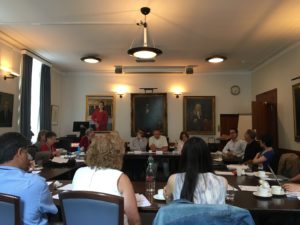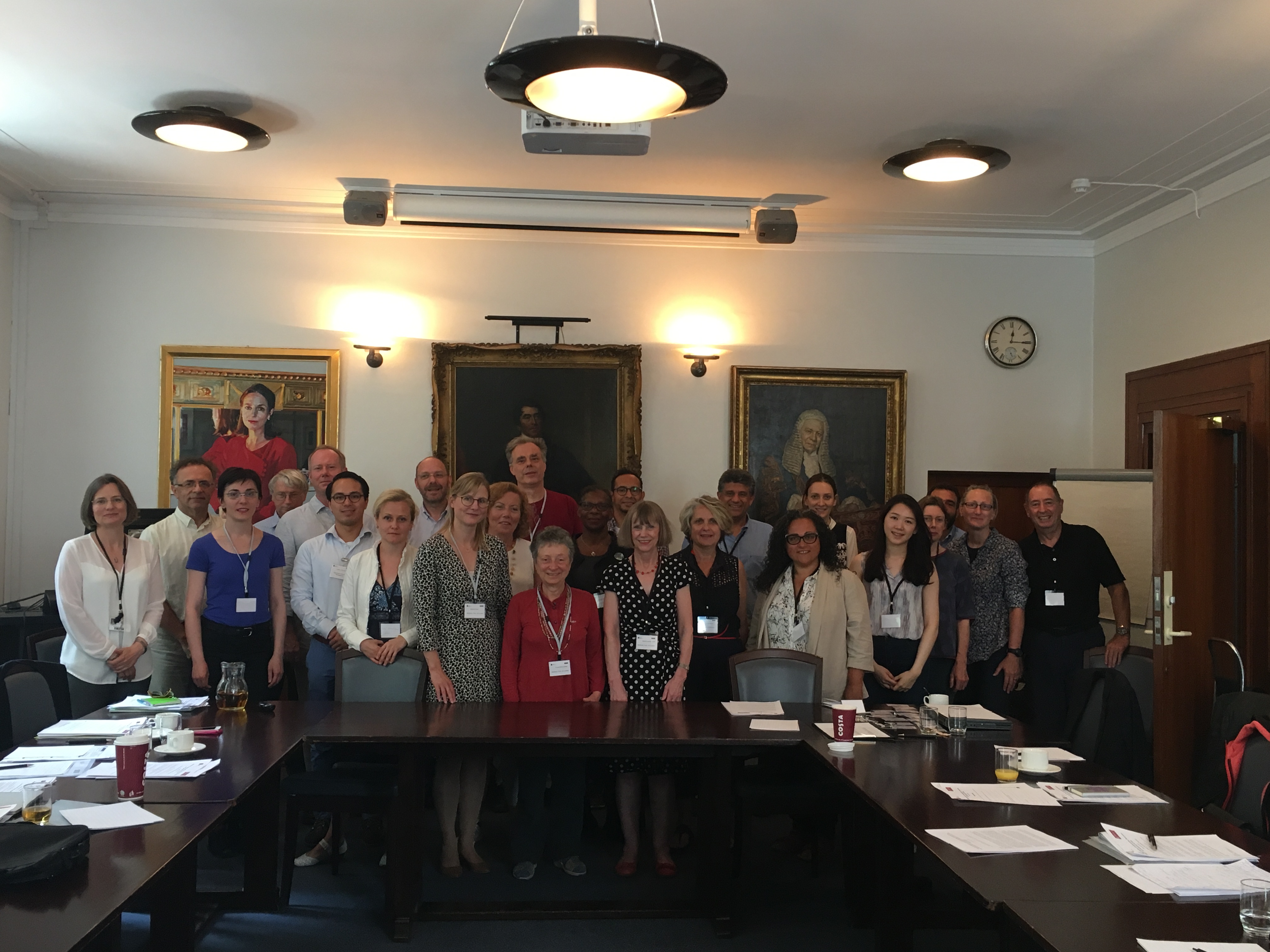On Friday 23 June, CIMR was delighted to bring together a group of experts in the field of business innovation and entrepreneurship to discuss the concept of Absorptive Capacity, and the associated conceptual and empirical issues. It was a successful day of thought-provoking research presentations, and provided a great opportunity to evaluate the significance of absorptive capacity on organisational performance and overarching industrial policy. In her welcome address, Professor Helen Lawton Smith, Director of the Centre, expressed that the workshop theme had been carefully chosen to reflect the importance of innovation for business and public management to the centre’s work. Absorptive capacity, she noted, is dispersed through the lexicon of innovation management literature so that every scholar in the field is aware in some way of its significance. But what does it mean for business? And in what way can the absorptive capacity concept provide information for management and policy?
Innovation for Development
Absorptive capacity is defined as the ability of a firm to identify valuable external knowledge and then to assimilate, transform, and apply this knowledge to their operations and innovations. The concept is highly relevant but often proves difficult to operationalize; the qualitative and multidimensional nature of the concept means it can be difficult to put into practice. The first presentation on developing indicators for absorptive capacity, delivered by Dr Marion Frenz and Prof Grazia Ietto-Gillies, discussed their new paper on these challenges, and to take the application from a micro to a macro level – to a larger industrial and international scale. In order to do so, organisations require innovation-enabling infrastructures that facilitate knowledge acquisition, assimilation and transformation, such as:
- Transformative learning processes, which foster knowledge accumulation
- Business, social and economic connectivity
- Human Resources
They went on to highlight that these enabling dimensions remain accessible for governmental, industrial and academic institutions, because broad ranging and measurable data is available.
The day’s presentations discussed further areas of related studies, such as integrating knowledge context and learning into the framework of absorptive capacity. Prof Stephen Roper, from the Enterprise Research Centre and Warwick Business School, provided key statistics on local innovation benchmarks and the drivers of innovation. After showing detailed geographical breakdowns of where the most innovative companies in the UK are clustered, he made the crucial comment that innovation depends on ‘the fire in the heart of management’ – whether a firm’s ambition is to become a world leader in the respective market, or make smaller, incremental breakthroughs into manufacturing a new product. His research also touched upon the benefits of interactive and exploratory search for knowledge acquisition and exchange strategies.
What does Absorptive Capacity mean for policy?
A round-table discussion involving all workshop participants shed light on some interesting implications for policymaking; if absorptive capacity is strongly connected to the innovative propensity of an company or indeed country, general policies should seek to encourage the innovative behaviour of firms. This can positively influence the stimulation of research and development and the establishment of innovation networks, as well as the engagement of skilled human capital in the company or country. Industrial development policies must acknowledge the need to have the capacity to absorb knowledge and innovate, and that such capacity is strongly embodied in people.
Similarly, a lack of absorptive capacity can be a challenge to policy evaluation; a high level of absorptive capacity is required if the lessons of evaluations are to be properly assimilated and applied. However, the extent to which that capacity exists varies from case to case, primarily because it is dynamic and thus difficult to measure.

A Timeless Concept?
While the concept of absorptive capacity and the innovation research explored at this event demonstrate the present and future of this concept, the vitality of the concept lies in its context dependency, history, and timelessness. Grazia Ietto-Gillies used a quotation from 18th century English author to demonstrate this: “A man must carry knowledge with him, if he would bring home knowledge”.
CIMR would like to thank the speakers and attendees for their insight and participation. For a full schedule of the day, please see the previous post entry.

